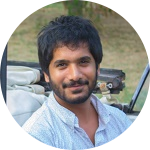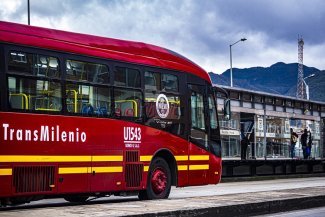On 13 April, Pakistani academic and activist Dr. Ammar Ali Jan was sacked from his job as an assistant professor at Punjab University in Lahore, ostensibly for expressing solidarity with the Pashtun Tahafuz [Protection] Movement, a civil rights group spearheaded by Pakistan’s second largest ethnic minority, the Pashtuns.
In an unusually direct confrontation with the country’s powerful military, the movement has accused the latter of carrying out grave human rights abuses in its war on terror in the south-western province of Balochistan and the Federally Administered Tribal Areas along the border with Afghanistan.
Over the last two decades, this region has become a theatre of religious militancy, American drone warfare and domestic military operations. Pashtuns comprise approximately 15 per cent of Pakistan’s 207 million people, and its activists are now demanding an end to the disappearances and extrajudicial killings of young Pashtun men – allegedly carried out by Pakistan’s security forces.
The group also decries racialised tropes of working-class Pashtun men as terrorists and savages, which result in their daily humiliations at military checkpoints and in the labour market. The movement has held huge rallies across the country in spite of media blackouts and the arbitrary detention of their leaders and supporters.
Jan’s dismissal is a manifestation of a public education sector built on nationalist propaganda and intellectual censorship. He believes his sacking was punishment for encouraging students from disadvantaged backgrounds to think critically and participate in progressive, non-violent political activities often censured by the elite establishment.
“I was also told that I was paying too much attention to ‘non-issues’ like women’s empowerment and institutional racism, which was supposedly detrimental to the ‘peace’ on campus,” Jan tells Equal Times. “I understand the reasons for such a decision: they don’t want teachers, they want jail wardens who can keep young people in line.”
According to the National Human Development Report (NHDR) released by the United Nations Development Programme earlier this month, Pakistan is currently one of the youngest countries in the world with 64 per cent of its population below the age of 30. The lead author of the report, Dr Adil Najam, says: “The most useful thing that can be done is to create meaningful opportunities in education, employment and engagement that could empower our young to unleash their potential.”
The report further states that out of 195 countries, only 14 spend less on education than Pakistan’s 2.3 per cent of GDP. In terms of development distribution, the relatively wealthy province of Punjab ranks highest according to Pakistan’s Human Development Index Report, whilst Balochistan is lowest.
“Dangerous consequences for national unity”
Moreover, young Balochi-Pashtuns emerge as a particularly marginalised group in Pakistan’s public education crisis. According to the Higher Education Commission of Pakistan, there are a total of 163 universities in Pakistan serving 120 million youths, of which 66 are private and 97 public. The majority of public universities can be found in Punjab, with only five in Balochistan. As a result, many Balochi-Pashtun youths are forced to seek education in Punjab, where they face discrimination and ethnic violence.
The Pakistani military tends to be intolerant of any criticism of its policies, seeing such dissent as a threat to national unity and security. Taha Siddiqui, an exiled journalist who escaped an abduction attempt after criticising the military, and later founded the censorship watchdog safenewsrooms.org, believes that suppressing diversity will not unite Pakistan. Instead, inclusivity in education – and by extension society, labour and politics – might help heal a divided country.
“I am afraid we might see a repetition of what we saw in 1971, when the military abused the rights of East Pakistan [now Bangladesh] and ended up losing half of the country. Pashtuns are the second largest ethnic group in Pakistan and shutting them out is pushing Pakistan towards a confrontation which may result in dangerous consequences for the unity of Pakistan,” says Siddiqui.
While some private universities offer a breathing space for critical minds, they remain inaccessible to the vast majority of young students. According to English Literature lecturer Khalid*, students are constantly priced out of quality education, resulting in a lack of social mobility and an ever-widening class-divide.
“Only people with money can study in Pakistan. The more money you have, the better the education or the worth of your degree,” he says.
Lacking in resources and prestige, public universities fail to attract the brightest and most capable teachers, but Jan and Khalid believe the privileged must transcend social barriers and contribute towards the democratisation of education in Pakistan. “At the end of the day, these universities will produce a generation of doctors, police officers, lawyers, judges, politicians, economists, teachers and so on...who won’t be properly prepared to think critically, or self-reflect, or question power,” says Jan.
Khalid says that a lack of material opportunities has created a cut-throat environment across Pakistan, and education facilities, deliberately or complicitly, perpetuate the status quo rather than equip students with the intellectual capacity to build a better future. “Educational institutions can breed cruelty, especially because of competition. I have learned how important it is to keep talking about compassion over and over and over again,” says Khalid.
Fanning the flames of radicalisation
In the last few years, a number of terrorist attacks have been linked to students at reputable universities. A broad study conducted by the British Council examined the academic backgrounds of 300 to 400 militants from the MENA region and found that most were business graduates, engineers, doctors or scientists. Examining the link between education and extremism, the study suggests that the step of embracing violence may be connected to the failure to question received ideas or alternative points of view. Thus, education is not simply a development issue but a security issue too, the study concludes.
The scale of radicalisation in Pakistani universities is far from systemic, and one must be careful to not exaggerate the threat, lest it be used to justify the surveillance of students. However, according to the president of Habib University in Karachi, Wasif Rizvi, the issue of extremism is an inevitable consequence of education policies that discourage freedom of speech and academic inquiry.
“Such policies create a sense a disconnect between people’s lived and educational experiences. If you don’t talk to students, they don’t stop thinking about what is happening in Pakistan and the world beyond. They continue to form opinions, which can be very clumsy and dangerous because they are not taught to question them,” he said at a talk about extremism in universities earlier this year.
Khalid agrees: “Our youth genuinely want to learn, but education loses its meaning when it is cut off from their lived experience; when students of political science are not allowed to [participate in] politics. I have learned so much about the world through my students, because they bring real experiences to the classroom. They are the ones most affected by what is happening in the country.”
From the 1950s up to the 1970s, Pakistan was home to all flavours of student movements, each actively engaged in an ideological competition with the other. In 1984 (at the peak of the Afghan-Soviet War), Pakistan’s military ruler General Zia-ul-Haq banned student unions across the country but continued nurturing religious-nationalist groups assembled to block communist and secular influences in public universities, a strategy used by various right-wing parties ever since. Subsequent attempts to revive student unions have failed to yield meaningful results.
“Today, we see youth wings of different political parties who impose their will on the student body, but we don’t really see democratically-elected student bodies fighting for the interests of students,” says Yasir*, a sociology researcher at Punjab University.
Dissent under attack
For Jan and Khalid, the ban on student unions has stymied the development of a democratic culture in Pakistan, turning universities into places where dissent is increasingly under attack.
On 27 May, 320 female students at Minhaj University in Lahore were expelled from its student accommodation for leaking a video, in which a member of the administration was seen insulting them for protesting a 6pm curfew. Last year, journalism student Mashal Khan was lynched by a 50-strong mob of fellow students over a false accusation of blasphemy. And in April, Manzoor Pashteen, leader of the Pashtun Tahafuz Movement, was banned from entering or speaking at his alma mater, Gomal University, allegedly after some behind-the-scenes arms-twisting.
At the same time, Jan and his colleague also became the target of slanderous campaigns and death threats when a religious-nationalist ‘student’ organisation known as Islami Jamiat-e-Talba (IJT) accused them of “anti-state” activities – an increasingly dangerous accusation in Pakistan. Jan and his colleague had organised a study circle during a protest held by Pashtun students, in which they paid tribute to Gandhi’s non-violent resistance against the British Raj.
IJT uses violence to dictate its own code of conduct at Punjab University, often intimidating teachers into practising self-censorship or simply disrupting classes. The latter can be especially difficult for female students, whose access to education is already limited due to patriarchal strictures.
The latest round of violence between Pashtun students and the IJT occurred in March after the latter attacked Pashtun students for celebrating their ‘culture day’, resulting in retaliations and a lockdown of the campus. As news of the violence spread across the city, people began to panic. One female student, who is a survivor of an acid attack, says she was worried about how the incident would impact on her educational future. “My parents are already traumatised, and I was scared that they wouldn’t let me go to the university anymore; that another public space, another right, would become inaccessible for me.”
Jan believes that education is the main battleground in Pakistan’s war against poverty and extremism, and peace-loving academics and activists from all sides of the political spectrum must work together to wrestle these spaces back from the those who discourage critical thought and open intellectual inquiry.
“Certain groups exploit the feeling of alienation felt by our young. If we were to give students a different sense of community based on kindness, solidarity, open-mindedness, and also a promise of a better future in which they could get better jobs, a place in society from which they [currently] feel removed and alienated, only then we will begin to see a change in discourse,” says Jan. “Only then will we be able to truly unite this country.”









